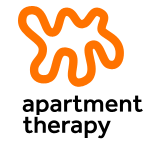Apartment Therapy
Apartment Therapy is a lifestyle blog and publishing company focused on home design and decor. Founded in 2001 by interior designer Maxwell Ryan, who is often dubbed "the apartment therapist," the site began as a weekly email to clients and friends before evolving into a media platform that now includes a website and social media channels. Apartment Therapy's mission is to help people make their homes more beautiful, organized, and healthy by connecting them to a wealth of resources, ideas, and community online.
History[edit | edit source]
Apartment Therapy was launched in 2001 as a service to help people design their interior spaces to improve their lives. Maxwell Ryan, a former elementary school teacher turned interior designer, started the project as a one-man operation. The concept was born out of his experience in interior design and his belief in the therapeutic power of a well-organized and designed living space. Over the years, Apartment Therapy has grown from a simple email list to a major digital publication in the home decor and design space.
Content and Features[edit | edit source]
The content on Apartment Therapy covers a wide range of topics related to home improvement, including interior design, DIY projects, before and after room makeovers, house tours, and tips on organizing and cleaning. The site also frequently features product recommendations, reviews, and roundups of affordable home decor finds.
One of the key features of Apartment Therapy is its community-driven approach. Readers are encouraged to submit their own homes for feature in house tours, share their own tips and tricks, and participate in discussions in the comment sections of articles. This has helped Apartment Therapy build a dedicated and engaged readership.
Impact and Reception[edit | edit source]
Apartment Therapy has been recognized for its influence in the home design and decor industry. It has been credited with popularizing certain home decor trends and has been a pioneer in advocating for the idea that good design can be accessible to everyone, regardless of budget. The site's approachable and practical advice has made it a go-to resource for both design enthusiasts and professionals.
Business Model[edit | edit source]
Apartment Therapy generates revenue through a combination of advertising, sponsored content, and affiliate marketing. The site partners with home decor and improvement brands to feature products and services that align with its mission and audience's interests.
Criticism[edit | edit source]
While Apartment Therapy has been praised for its inspirational content and community engagement, it has also faced criticism. Some critics argue that the site can perpetuate unrealistic expectations about home aesthetics and lifestyle, contributing to a culture of consumerism. Others have pointed out the challenges in replicating the designs and projects featured on the site on a tight budget.
Conclusion[edit | edit source]
Apartment Therapy stands as a significant player in the digital media landscape, particularly in the home design and decor niche. Its success is attributed to its comprehensive coverage of home improvement topics, community-driven content, and the relatable and practical advice it offers to its readers. As the site continues to evolve, it remains committed to its mission of making home design accessible and achievable for all.
Search WikiMD
Ad.Tired of being Overweight? Try W8MD's NYC physician weight loss.
Semaglutide (Ozempic / Wegovy and Tirzepatide (Mounjaro / Zepbound) available. Call 718 946 5500.
Advertise on WikiMD
|
WikiMD's Wellness Encyclopedia |
| Let Food Be Thy Medicine Medicine Thy Food - Hippocrates |
Translate this page: - East Asian
中文,
日本,
한국어,
South Asian
हिन्दी,
தமிழ்,
తెలుగు,
Urdu,
ಕನ್ನಡ,
Southeast Asian
Indonesian,
Vietnamese,
Thai,
မြန်မာဘာသာ,
বাংলা
European
español,
Deutsch,
français,
Greek,
português do Brasil,
polski,
română,
русский,
Nederlands,
norsk,
svenska,
suomi,
Italian
Middle Eastern & African
عربى,
Turkish,
Persian,
Hebrew,
Afrikaans,
isiZulu,
Kiswahili,
Other
Bulgarian,
Hungarian,
Czech,
Swedish,
മലയാളം,
मराठी,
ਪੰਜਾਬੀ,
ગુજરાતી,
Portuguese,
Ukrainian
Medical Disclaimer: WikiMD is not a substitute for professional medical advice. The information on WikiMD is provided as an information resource only, may be incorrect, outdated or misleading, and is not to be used or relied on for any diagnostic or treatment purposes. Please consult your health care provider before making any healthcare decisions or for guidance about a specific medical condition. WikiMD expressly disclaims responsibility, and shall have no liability, for any damages, loss, injury, or liability whatsoever suffered as a result of your reliance on the information contained in this site. By visiting this site you agree to the foregoing terms and conditions, which may from time to time be changed or supplemented by WikiMD. If you do not agree to the foregoing terms and conditions, you should not enter or use this site. See full disclaimer.
Credits:Most images are courtesy of Wikimedia commons, and templates, categories Wikipedia, licensed under CC BY SA or similar.
Contributors: Prab R. Tumpati, MD

